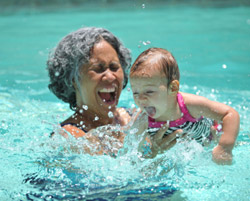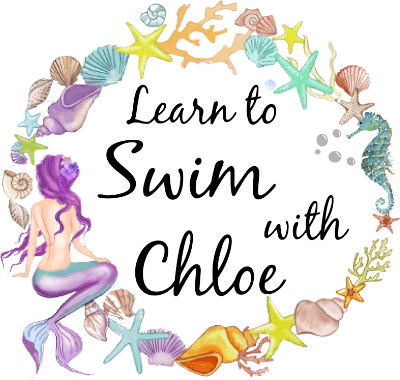The following are health and safety conditions put in place by Swim with Chloe.
Swim with Chloe must be notified of any conditions that may mean your child could require specalised medical attention thoughout the duration of the lessons .
Health
You must tell the kaiako (teacher) at Swim with Chloe about anything that affects you or could affect you or the child/ren in your care that may affect participation, such as your health.
While participating in Swim with Chloe block weeks you agree;
- That you know of no medical or other reason why you or the participant(s) cannot take part;
- That participating in the Swim School will not damage you or the participant(s) health, safety, comfort or physical condition; and,
- That you or the participant(s) will use your best efforts to participate in a way that ensures not only your/ their safety but also the safety of others.
You agree that you or the child/children in your care will not use the facilities if suffering from:
- an infection of any sort or kind, or
- an illness of any sort or kind, which may be contagious and put other members at risk; or
- a physical complaint which may put other members at risk, such as (by way of example only) an open cut or other similar wound, or
- where there is any other risk, however small, to other members.
Please check the SWC lesson information regarding additional health and safety for both the Indoor Swim Programmes and Outdoor Swim Programmes relating to your aquatic environment.
There will be a staff member with a cell phone at the pool at all times for use in emergencies.
The following are Health and Saftey requirement from the New Zealand Ministry of Health that can be found and are avaliable on the Ministry of Health website.
Water activities
Water is a great place to be physically active.

Water activities can be:
- exciting and active
- diverse and wide-ranging
- fun for the whole family
- enjoyed on, as well as in the water.
If activities are done in the water they:
- take the load off your body
- are soothing and therapeutic
- are low impact – your joints and muscles are under less stress when in water
- use nearly all your body’s muscle groups (when using full swimming techniques)
- are excellent during pregnancy – as the water supports the weight of the baby
- are great for older people and people with health conditions, such as osteoarthritis and obesity, as the water supports your weight and keeps you cool.
Always supervise children near water!
Supervision of children in, on or near water is vital for their safety. Proper supervision in and around water requires a responsible adult keeping young children in their care within sight and within reach at all times.
Rivers, lakes and seas
Rivers, lakes and seas are an integral part of New Zealand culture, and have particular cultural significance for Māori who have a special connection to the water. Water is essential to life and identity for Māori and represents vitality. It is an area of play and amusement, a place to bathe and wash, a source of spiritual sustenance, healing, and nutrition.
Rivers, lakes and seas are a fantastic place for recreational activities, such as swimming, rafting, waka ama, hoe waka, kayaking, fishing and diving.
Physically active
Water activities can help a person to achieve the physical activity recommendations for New Zealanders. Water activities can include some or all of the four types of activity important for wellbeing and overall quality of life – aerobic, balance, flexibility and strength. It is important to choose activities that cover some or all of the activity types, particularly as we get older.
Swimming
Swimming is the most popular recreational activity for males and females aged 16 to 24 years old. Swimming is in the top three activities for all other adult age categories across all ethnicities. Approximately 1.14 million (34.8%) New Zealand adults swim at least once per year (SPARC 2008).
When you begin, start slowly and speed up as your body warms up. Aim to start with one length of the pool (or equivalent in the sea), using any stroke or strokes.
Water safety
Whether you’re planning on being in, on or under water, we want you to be safe. With any outdoor pursuit, conditions can change fast. AdventureSmart has some great resources to help you stay safe.
Visit the AdventureSmart website, which provides the New Zealand public and tourists with advice and resources on how to enjoy water activities safely. AdventureSmart resources include the Water Safety Code and the Boating Safety Code.
The Water Safety Code includes four key safety messages:
- Be prepared.
- Watch out for yourself and others.
- Be aware of dangers.
- Know your limits.
Before you take to the water
Swimming is healthy and fun, and swimming pools are safe and healthy environments. But there are bugs and infections in the community that can be brought into the water and spread.
It’s important that you as a swimmer do your bit to stop these bugs and infections from getting into the pool.
Help yourself and others to stay healthy in and out of the water by following a few simple steps.
Before you swim in a pool
- If you have had diarrhoea (upset tummy) in the last 2 weeks – don’t go into the water.
- If your child has had diarrhoea in the last 2 weeks – don’t let them go into the water.
- Take children to the toilet before they swim and wash hands after going to the toilet.
- Where possible shower yourself and your children before you put togs on. Use soap and warm water (especially in the area around your bottom).
- Your baby should wear approved swimming nappies because cloth and disposable nappies are not allowed at swimming pools. Pool staff can tell you if your nappies are approved.
- Remember to wash your hands after changing your baby.
MINISTRY OF HEALTH AUG 2020








